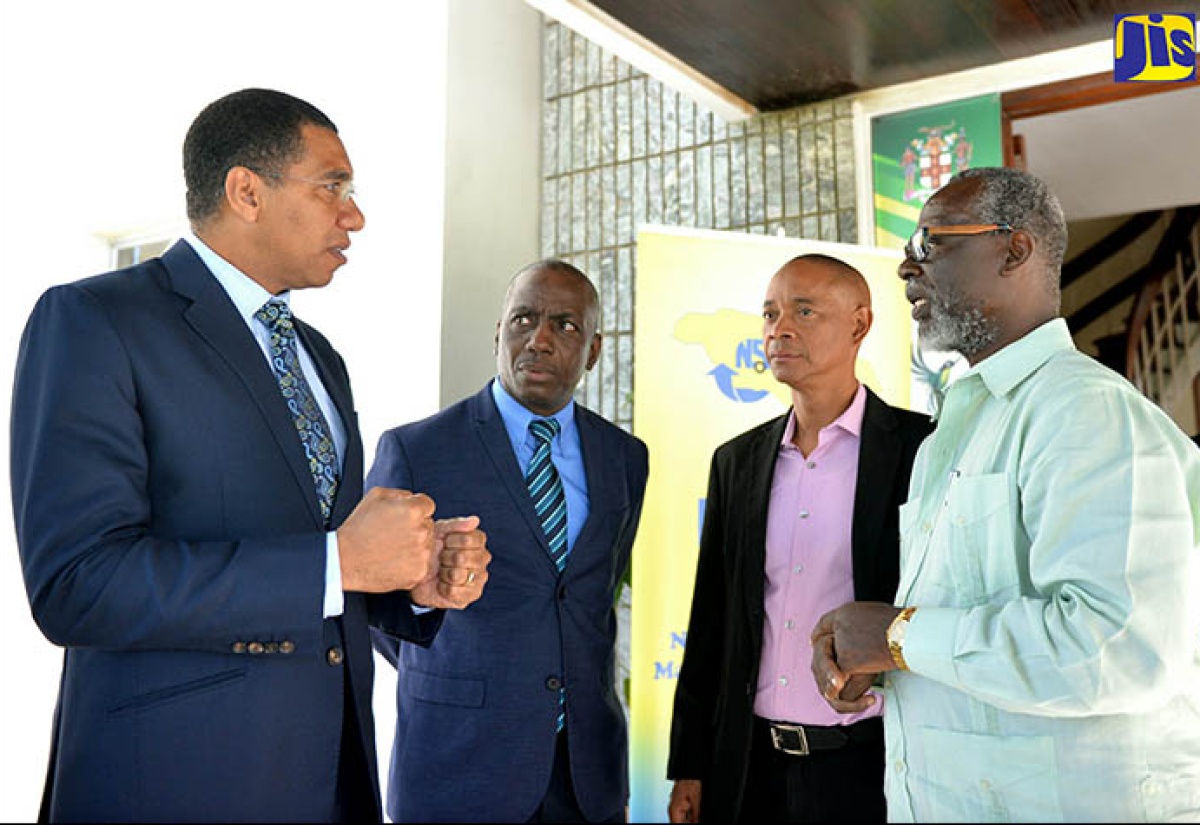NSWMA Pre-Feasibility Study Completed
By: , October 25, 2017The Key Point:
The Facts
- The Prime Minister, who was addressing a ceremony for the handover of 11 new garbage trucks to the NSWMA at Jamaica House on Tuesday (October 24), pointed out that privatisation of the agency would allow it to focus on being a regulator rather than an operator.
- Chairman of the Enterprise Team, Lyttleton Shirley, in providing details about the outcome of the study, said it found that waste could be harvested and converted to energy through mechanisms other than incineration, such as anaerobic digestion or landfill gas-to-energy.
The Full Story
Prime Minister, the Most Hon. Andrew Holness, says the pre-feasibility study on the divestment of the commercial activities of the National Solid Waste Management Authority (NSWMA) is now complete.
The study was conducted by the Riverton Disposal Site Enterprise Team, which was commissioned by the Prime Minister in October last year.
It explored options for public-private partnerships (PPPs), as well as potential changes in regulations, to achieve an integrated solid-waste-management system (ISWMS) in which every type of waste will be transformed into some form of value-added product.
The study also looked at an implementation plan that will guide the Enterprise Team in undertaking the PPP.
The Prime Minister, who was addressing a ceremony for the handover of 11 new garbage trucks to the NSWMA at Jamaica House on Tuesday (October 24), pointed out that privatisation of the agency would allow it to focus on being a regulator rather than an operator.
He argued that garbage collection “is a service that the Government need not provide”.
“I strongly believe that whatever service that the private sector could provide more efficiently, more effectively, Government should step back (or) away from that and allow the private sector to provide it. The role of Government is to regulate; the role of Government is to set standards and police those standards,” he argued.
Chairman of the Enterprise Team, Lyttleton Shirley, in providing details about the outcome of the study, said it found that waste could be harvested and converted to energy through mechanisms other than incineration, such as anaerobic digestion or landfill gas-to-energy.
It was also recommended that some disposal sites may need to be converted into sanitary landfills or closed, and that alternative transfer stations, which are strategically located, could be employed.
“A rationalisation has to be done in tandem with the plans for the PPP, to ensure that waste can be moved to treatment sites from the source more efficiently,” he added.
Mr. Shirley said that with the completion of the pre-feasibility study, the Enterprise Team has now begun the consultation process to move to the next phase.
This, he said, will involve engaging in deeper and more focused due diligence to prepare a PPP transaction.
“The due diligence will involve interviews with the private sector to determine their requirements. Additionally, there will be more consultations with the Government to specify the scope and requirements of a request for proposal, and consultations with communities and industry players to ensure a sustainable buy-in,” he said.
The pre-feasibility study was conducted with assistance from the World Bank.


